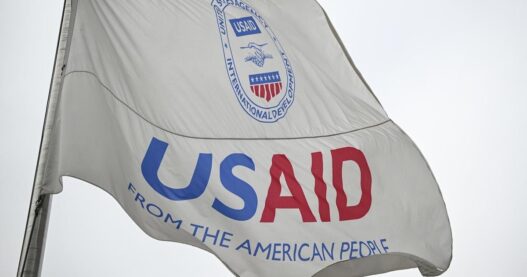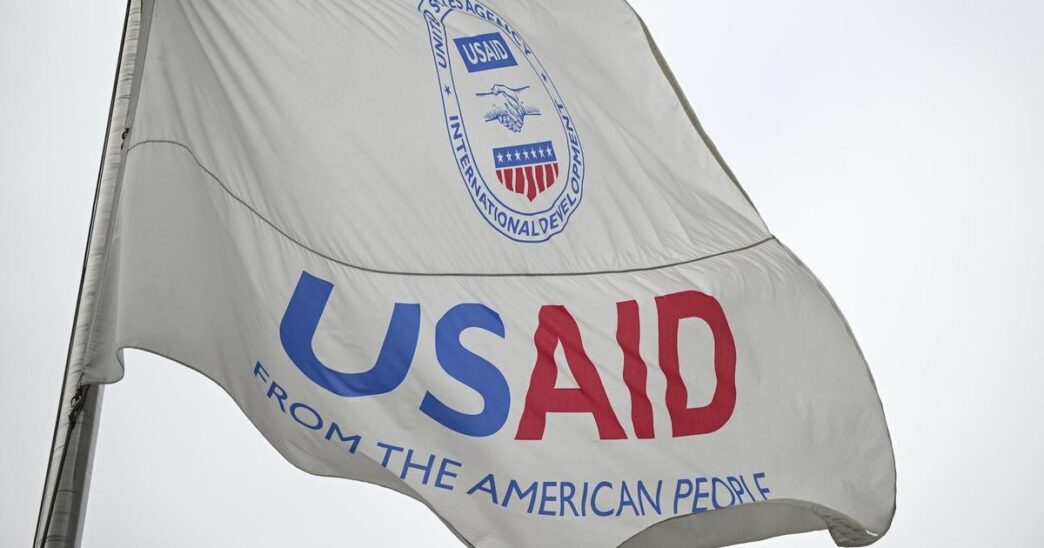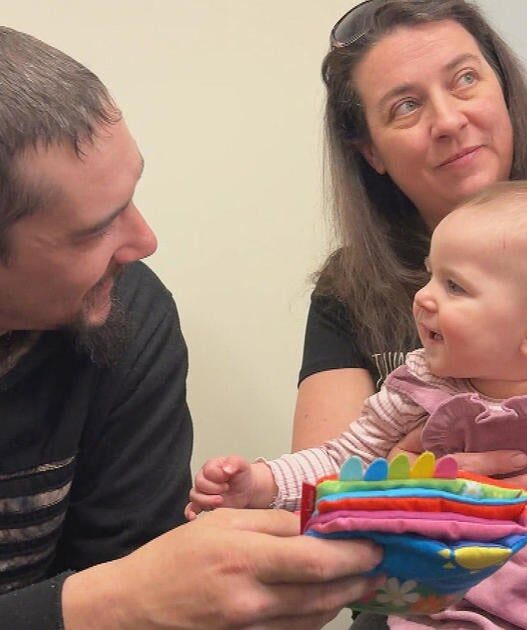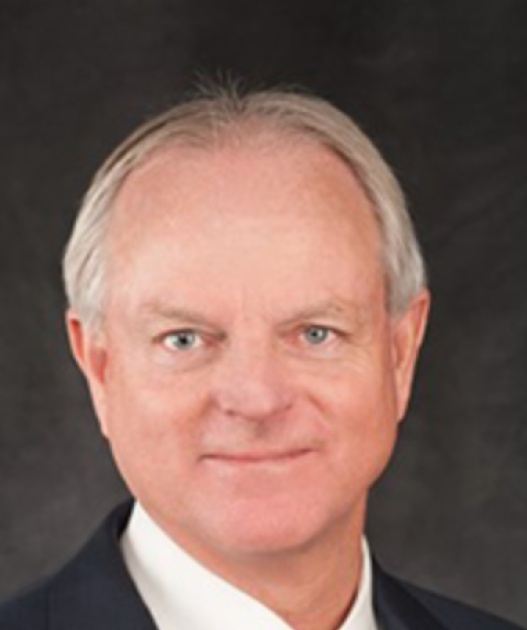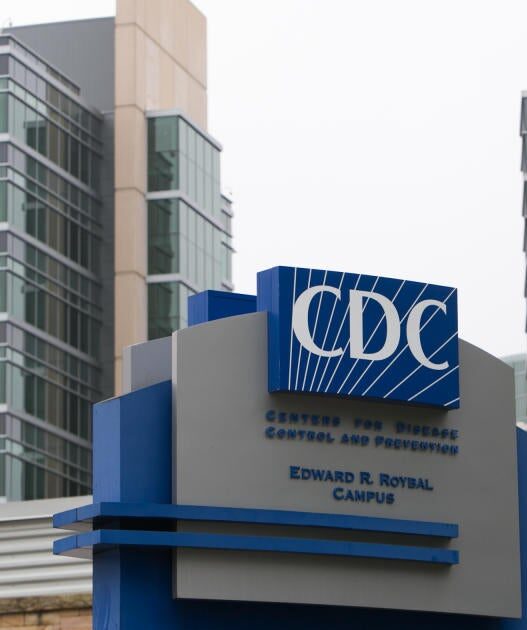Some health officials in the U.S. fear the shutdown of U.S. Agency for International Development missions may have disastrous results, as the stalling of foreign aid has forced delays in what they said was the “chaotic” early U.S. response to Uganda’s swelling Ebola outbreak.
The outbreak marks Uganda’s eighth from an Ebola virus. The first confirmed case in the outbreak was a nurse at a hospital in the nation’s capital, Kampala, who contracted Ebola on Jan. 20 or Jan. 21 and died on Jan. 29.
There are now six confirmed and six suspect cases. In two of the suspect cases, according to an internal slide shared with CBS News, health authorities have identified no epidemiological link to the other cases.
More than a dozen Americans in Uganda are also among those so far known to have been exposed to Sudan virus, the type of Ebola that had infected the initial case. Those people so far have not shown symptoms, two people familiar with the situation told CBS News.
There is no vaccine or treatment approved by the Food and Drug Administration for Sudan virus. This Ebola strain has been fatal in at least 41% of reported cases during past outbreaks, according to the World Health Organization.
The new outbreak coincides with the Trump administration’s pause in foreign aid — including its response to international outbreaks that could spread. This has spawned uncertainty among health nonprofits, which now face unpaid debts and a sweeping freeze on much of their U.S. funding.
“What we’re talking about are disaster relief workers, we’re talking about health workers and people who are doing good and protecting America around the world,” Dr. Atul Gawande, a former USAID global health director, told CBS News on Monday.
The pause has resulted in understaffed contact tracing and screening of departing international travelers in Uganda, one U.S. official said, since many experts funded by the U.S. around the region have been laid off or ordered to stop work.
USAID is set to put virtually all its staff on leave on Friday and is shutting down overseas missions.
“It puts the world at risk,” said one USAID official in a message. “I’m not an alarmist, but this is very bad,” the official added.
In 2022, an outbreak of Sudan virus in Uganda prompted a large American response. The U.S. ramped up screening and preparedness for the virus here and sent staff and resources to aid Uganda’s efforts to contain its spread.
Uganda’s healthcare system had already been stretched thin in recent months, battling a separate outbreak of a different disease – mpox – that has resulted in at least 2,031 cases, according to the WHO.
Spokespeople for the State Department and USAID did not immediately respond to a request for comment.
President Trump has also ordered the U.S. withdrawal from the WHO, which was paired with a demand for all U.S. government staff to immediately sever collaboration with the U.N. agency that is helping to coordinate the response within the country.
A U.S. health official said that CDC usually works closely with the WHO and a country’s health authorities, often meeting daily to coordinate the response to outbreaks like this.
Despite the president’s order regarding WHO, “CDC has been cleared to speak one-on-one with WHO counterparts related to response activities in Uganda,” a CDC spokesperson said in a statement. The CDC said such conversations are also allowed regarding responses to other outbreaks of concern in Tanzania and the Democratic Republic of the Congo.
Attempts by U.S. agencies to deploy staff to aid the outbreak response have also been delayed, one official said, amid government-wide pauses to travel and spending.
While officials secured a waiver on Saturday from the State Department to free up some funds for the response, many recipients of U.S. funds have been reluctant to accept the money because of the turmoil in Washington, two people familiar with the situation said.
Nonprofits have also been grappling with a growing number of demands imposed by the Trump administration as a condition for receiving funds, like a sweeping order to purge all mentions of gender and diversity “at every level and activity, regardless of your location or the citizenship of employees or contractors” supported by U.S. dollars.
In Uganda, groups are still waiting for clarification from their in-country contacts at USAID about how the waiver would apply to their work, the people said, wary of incurring more expenses that might never be repaid.
Following Mr. Trump’s executive orders, the country’s health ministry urged all staff backed by CDC and USAID to “continue working in the spirit of patriotism as volunteers,” in a letter obtained by CBS News, as Ugandan officials sought “to restore normalcy.”
“Radio silence” from the CDC
The growing outbreak in Uganda has also left some state and local health authorities befuddled with the “radio silence” from the CDC, officials told CBS News.
In past outbreaks, CDC officials were quick to start ramping up preparedness for the possibility of cases spreading to the U.S.
External meetings and information sharing that health authorities usually rely on to communicate with CDC officials were canceled amid the communications “pause” across the Department of Health and Human Services, or HHS.
An HHS spokesperson did not immediately respond to a request for comment.
The communications pause was initially expected to end this past weekend, but many federal health officials say they’re still facing delays or denials in getting approval to publish information or participate in external meetings.
“HHS continues to increase staff levels as we look forward to the new Secretary leading the agency. HHS has approved numerous communications related to critical health and safety needs and will continue to do so,” Andrew Nixon, the department’s communications director, told CBS News in an earlier statement.
As a stopgap, some states have been working on informal partnerships to ramp up their own preparedness for the arrival of potential cases, officials said.
The CDC was able to publish a travel alert on Wednesday about travel to Uganda, but it left out links and information from the WHO’s updates about the outbreak.
Other donors stepping in
Not all health experts are alarmed about the current situation.
Two U.S. infectious disease physicians who have worked with outbreaks in the country expressed confidence that other groups and countries would be able to fill the void left by American support, but acknowledged they’re concerned about the possibility of undetected spread and delays in the response.
In past outbreaks of Ebola, the U.S. has often funded many of the key steps to contain the outbreak in its earliest days, including rushing to set up isolation facilities and support the outbreak response from an array of non-governmental organizations with workers in the country.
U.S.-funded laboratories have usually been on the front lines of past responses to outbreaks, through institutions like the Uganda Virus Research Institute.
Some groups, like Médecins Sans Frontières and the WHO, have tried to cover the shortfall. The WHO recently touted its launch — with the help of Canada and Europe — of a vaccination trial in response to the outbreak.
Russia may also help fill the vacuum left by the U.S. departure: state media recently said the nation had launched a mobile lab in Uganda’s capital to help with the outbreak.

